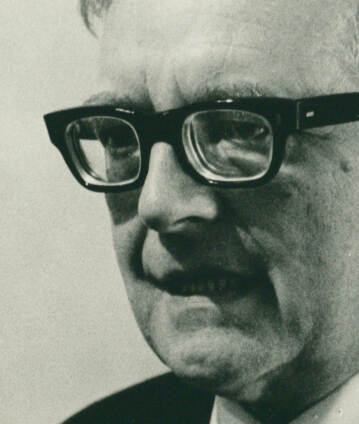Dmitri Shostakovich
Composer
In 1936, the defamation of the previously acclaimed opera Lady Macbeth of the Mtsensk District by Dmitri Shostakovich, brought about by Stalin himself, was a shock to the young composer, from which he would not fully recover his entire life. Nevertheless, the death of the dictator in 1953 freed him of the acute fear of arrest which until then had been possible at any time. Last but not least, Shostakovich’s fate shows the arbitrariness of totalitarian regimes: the Soviet government decorated the composer with several Stalin awards, and profited from his international fame while at the same time harassing and repressing him.
After the opera scandal, Shostakovich focused primarily on instrumental music which was more difficult to decipher in its content and political references. The 15 both symphonies and string quartets, together with the solo concertos for piano, violin and cello, are among his most important works. If the early pieces show the artist as a self-confident and high-spirited enfant terrible, the musical language in later compositions is characterised by grief, sarcastic wit, ambiguity and an almost unprecedented intensity of expression. The affinity with Gustav Mahler is unmistakable. The works of Shostakovich have been central to the repertoire of the Berliner Philharmoniker since Sergiu Celibidache and the orchestra gave the German premiere of the Fifth Symphony in 1946. Herbert von Karajan particularly revered the Tenth, which he conducted in the presence of the composer at a Philharmoniker guest performance in Moscow in 1969. Sir Simon Rattle, as chief conductor, programmed Shostakovich’s symphonies for the season opening concert in 2008/09 and 2015/16.